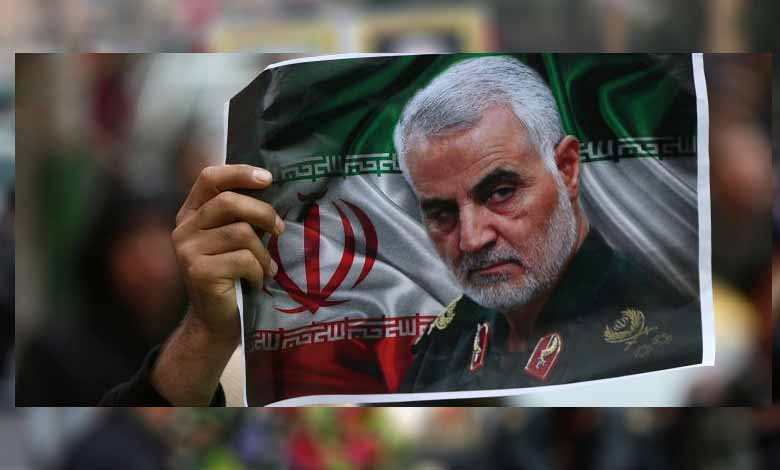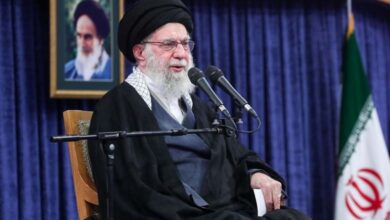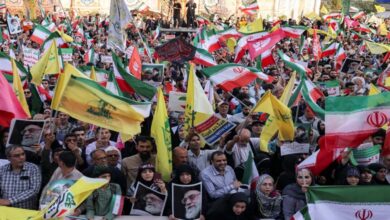Iran: Biden White House also “responsible” for Soleimani’s death

The Iranian regime’s suffering is being revived on January 3, the second anniversary of the death of General Qassem Soleimani, who was shot down by a US drone.
In a Bloomberg article, American columnist Eli Lake called on President Joe Biden to mark the occasion by making clear that Washington is prepared to impose more than economic sanctions in its efforts to deter Iran’s nuclear ambitions.
“Soleimani – who established the Qods Force to serve as a NATO terrorist alliance, linking militias in Lebanon, Iraq, and Yemen in a strategic alliance – was Iran’s most important military commander”, Lake said.
In response to his death, Iran fired a barrage of ballistic missiles at al-Assad’s base in Iraq, causing brain injuries among more than 100 U.S. troops and mistakenly shooting down a Ukrainian Airlines jet.
The U.S. journalist said in his article that Iran’s leaders view Soleimani’s death as an additional justification for Iran’s nuclear and missile program, as well as a broader policy of intimidation of weaker states in the Middle East.
Iran’s leaders see themselves as “victims” under constant threat.
But the reality is different, Lake said, with Soleimani’s assassination in response to a series of escalations that began after 2018, after former President Donald Trump pulled the United States out of the 2015 nuclear deal.
In 2019, Iran fired cruise missiles and aircraft at Saudi oil fields, attacked ships in the Persian Gulf, and stepped up militia attacks on U.S. positions in Iraq.
“The last straw came at the end of last year, when coordinated crowds nearly stormed the US embassy in Baghdad”, Lake said.
The American journalist said that after the raid that killed Soleimani, Iranian militias continued to attack U.S. sites in Iraq, while Iranian scientists continued to install more advanced centrifuges in their nuclear facilities.
But Iran has stopped threatening merchant ships, and U.S. embassies have not been subject to further crowd attacks. While some of this can be attributed to the new coronavirus pandemic, Trump’s show of force is also a factor.
“Biden has assumed the presidency, Iran’s escalations have become bolder, and despite Biden’s offer to lift Donald Trump’s economic sanctions if Tehran returns to the enrichment restrictions set by the 2015 nuclear deal, Iran is now enriching uranium to 40 percent purity, a level too close to what is needed to make a weapon”, Lake said.
In October, Iranian proxies launched a drone attack on a U.S. base on the Syria-Iraq border.
Then, in November, a booby-trapped Iranian march attempted to assassinate Iraqi Prime Minister Moustafa al-Kazimi.
Throughout that time, Iran has continued to arm its coalition of regional militias with more military technology”, Lake noted.
In the face of escalation, the Biden administration has tried to deal wisely with Iran, Lake said. On the one hand, it has continued to hold out hope for diplomacy even though Iran’s envoys in Vienna no longer meet with the U.S. envoy.
On the other hand, the United States eased some sanctions, increasing Iran’s oil exports but not unilaterally lifting them. At the beginning of his administration, Biden ordered a missile strike on Iranian-backed militia bases in response to an attack.
More worryingly, however, according to the American writer, the United States has announced its disapproval of Israeli intelligence operations against Iran’s nuclear infrastructure.
Some administration officials doubt the effectiveness of Israeli sabotage and assassinations inside Iran, according to the New York Times, fearing that it would provide an incentive for Iran to rebuild its nuclear program better, according to the American journalist.
This is a wrong message, Lake said, threatening not only to isolate its most important ally against Iran, but also to provoke further provocations from Iran.
He concluded by emphasizing that Biden should commemorate Soleimani’s death, like the Iranian regime, and make clear that the United States is prepared to use force against a regime that was not deterred by sanctions alone.












